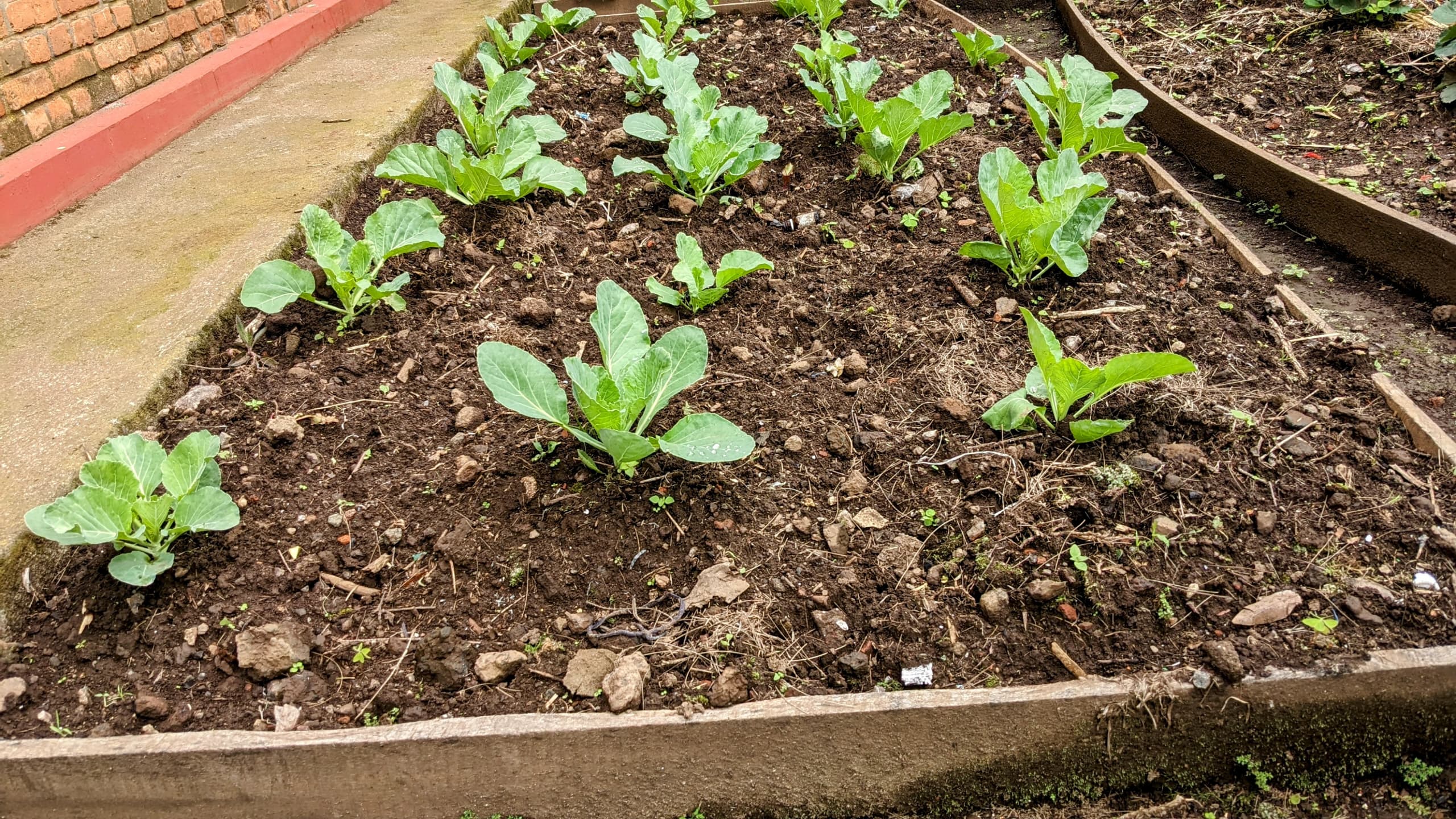Urban Farming as A Home-Grown Solution
Read more
+(250) 791 728 026

Urban Farming as A
Home-Grown Solution for Healthy Living
At Wildlife
Conservation Initiative (WCI), we believe in leading by example, which is why
our urban farming initiative at the Musanze City office is more than just a
project; it’s a demonstration of practical solutions for sustainable community
development. This initiative integrates environmental stewardship, innovative
farming techniques, and health promotion to improve the lives of local
communities while protecting the planet.
Sustainable Practices
for a Greener Future
Our urban farming model
is built on sustainable principles:
Home biodegradable
waste is collected and transformed into nutrient-rich compost, reducing
landfill waste and providing natural fertilizer for crops.
Creativity meets sustainability as we repurpose old household materials for horizontal and vertical farming systems, optimizing space and resources.
Photo: Reuse old household materials for cultivating Passion Fruit (Passiflora edulis)
By cultivating fresh
vegetables, fruits, and herbs on-site, we ensure access to nutritious food,
which helps combat infant stunting, saves money, and promotes self-sufficiency.
A Diverse Array of
Crops at Wildlife Conservation Initiative (WCI)
Vegetables
Cabbage:
A nutritious, versatile vegetable high in vitamins C and K, rich in fiber for
digestion, and packed with antioxidants that reduce inflammation.
Photo: Ecological farming practices for organic cabbage
Onion (Allium cepa): A staple ingredient rich in antioxidants, promoting heart health.
Spinach (Spinacia
oleracea): High in iron and vitamins, it boosts immunity and overall
health.
Carrot (Daucus
carota): A powerhouse for improving vision and skin health.
Fruits
Blueberry (Vaccinium spp.): Packed with antioxidants, they enhance brain function.
Photo: Ecological farming practices for organic Blueberry (Vaccinium spp.)
Passion Fruit (Passiflora
edulis): Supports digestion and strengthens the immune system.
Avocado (Persea
americana): A heart-friendly fruit rich in healthy fats.
Cash Crops
Irish Potato (Solanum
tuberosum): A versatile staple providing energy and fiber.
Sweet Potato (Ipomoea batatas): Rich in dietary fiber, vitamins (especially vitamin A), and antioxidants, supporting immunity and eye health.
Beans (Phaseolus
vulgaris): A protein-rich crop that improves soil fertility.
Sugarcane (Saccharum
officinarum): A natural sweetener and energy source.
Herbs & Spices
Basil (Ocimum
spp./Umwenya): A fragrant herb used for culinary, medicinal, and aromatic
purposes.
Fever Tea (Lippia
javanica): Known as lemon bush or fever tea, widely used in traditional
medicine for treating colds, fever, and respiratory issues.
Guinea Sorrel (Hibiscus
sabdariffa): red calyces are used to prepare hibiscus juice, teas, and
traditional remedies. Also known for its nutritional and medicinal benefits.
Rich in vitamin C, antioxidants, and minerals, it boosts immunity, aids
digestion, and helps regulate blood pressure and has anti-inflammatory
properties.
Medicinal Plants
Aloe Vera (Aloe vera):
Renowned for its soothing and healing properties for skin and wounds.
Capsicum (Capsicum
spp.): Contains capsaicin, which reduces inflammation and boosts
metabolism.
Okra (Abelmoschus
esculentus): Supports digestion and promotes heart health.
Bitter leaf (Vernonia
amygdalina): Bitter leaf used in traditional medicine for detoxification,
managing diabetes, aiding digestion, and natural remedies for malaria and
gastrointestinal issues.
Biodiversity and
Ecosystem Restoration
Our urban farm includes two artificial ponds surrounded by wetland plants like papyrus (Cyperus papyrus), creating habitats for birds and frogs. These ecosystems enhance biodiversity while providing sustainable manure through regular removal and composting of water hyacinths.
Photo: Ponds serving as habitats for birds and frogs
Wildlife Conservation Initiative (WCI) exemplifies how urban farming can address food security, environmental conservation, and economic empowerment simultaneously. By adopting these sustainable practices, communities can achieve healthier, greener, and more resilient livelihoods.